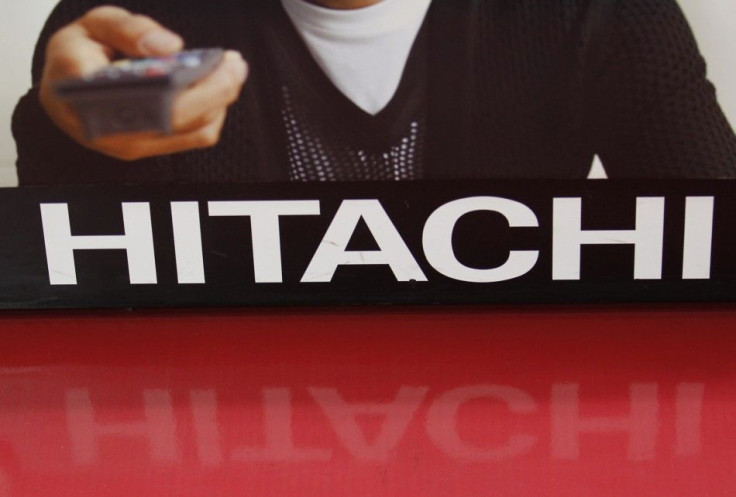Japan Inc Could Lose Out as Hitachi-Mitsubishi Heavy Merger Talks Crumble

The crumbling of mega-merger talks between Japanese industrial behemoths Hitachi and Mitsubishi Heavy Industries threatens a rare opportunity for Japan to improve its global competitiveness by consolidating century-old companies.
Hitachi and Mitsubishi Heavy are ready to walk away from talks that would have created an industrial giant with more than $150 billion in sales, sources told Reuters on Friday, after preliminary discussions were thrown suddenly into the media spotlight and the companies turned cautious.
Traditionally seen as a last resort of failing firms, Japanese companies until recently have largely avoided strategic mergers.
A combination of two of Japan's oldest, most established conglomerates would have sparked more, providing companies a tool squeeze costs, combat a surging yen and gain competitive scale.
"If this merger were to go through, competitors would start considering coming together so they could better compete with the merged entity," said Atsushi Abe, managing partner at Sangyo Sosei Advisory, a Tokyo-based merger advisory firm.
"This consolidation would take place across several segments and that would be good for Japanese companies to boost their global competitiveness," Abe said.
A wave of consolidation could engulf Hitachi's main competitors, such as Toshiba and IHI, which would compete directly with the combined conglomerate in the infrastructure sector, bankers said.
Mitsubishi Heavy has a global presence in manufacturing trains and subways, and competitors such as Kawasaki Heavy Industries could come under pressure to find a merger partner, they said.
Another sector to watch is autos, given Mitsubishi Heavy's close ties with Mitsubishi Motors, said Keiji Miyakawa, chairman of the Tokyo office for Lincoln International, an advisory firm for mergers and acquisitions.
Mitsubishi Heavy is the top stakeholder in Mitsubishi Motors.
CHANGING MINDSET
A merger between Mitusbishi Heavy and Hitachi could also signal a change of mindset among managers who are feeling the pinch of global competition and a strong yen.
The March 11 earthquake and tsunami added to their sense of crisis, helping to spark bolder decision-making, bankers said.
"This could be a very big first step for consolidation in the Japanese industry," Miyakawa said.
Bolstering global competitiveness has become a more urgent task as Japanese companies lose market share to companies from elsewhere in Asia.
Their low profitability in particular makes it difficult for them to engage their Asian rivals in price competition.
Japan Inc's profitability is among the weakest globally. On average, Japanese companies' return on equity -- a key measure of profitability -- was 6.0 last year versus the global average of 11.9, placing Japan in the bottom league with Italy, data from Thomson Reuters StarMine data shows.
Japanese companies' average operating or EBITDA margin stood at 11.5 percent last year, ranking only above Latvia and Ireland and compared with a global average of 18.4 percent, 19.3 percent for Italy and 18.8 percent for UK.
Many Japanese companies are trading far below their historical valuations, underscoring market expectations of sluggish growth.
Toshiba is trading at a forward price-earnings ratio of 10.8 versus its 10-year median of 20.3, while Mitsubishi Heavy trades at a price-earnings multiple of 23.7, versus a 10-year median of 37.4.
CORPORATE CULTURE
Bankers say mergers need to be executed effectively to help companies shape up.
Japanese companies often find it difficult to make hard choices about which businesses to divest, due in part to a corporate culture that emphasizes maintaining employment levels and control over operations.
Because of this, many merged entities will end up holding onto everything without any real consolidation, bankers said.
Mergers are also hindered in Japan by a reluctance to hand management control to a rival company, often rendering them a last resort for companies facing insolvency.
Hitachi, which boasts annual revenues of 9.3 trillion yen ($117.7 billion), counts telecommunications equipment, power systems and nuclear reactors among its core operations.
Mitsubishi Heavy, which traces its origins back to 1884, builds ships and trains, auto parts and defense systems, as well as power-generation systems.
Armed with a stronger yen and the need to expand overseas, Japanese firms have been swiftly snapping up foreign rivals.
Japanese companies made $41.7 billion worth of foreign acquisitions since the beginning of this year, up 53 percent from a year ago, while deals between Japanese companies grew a more modest 9 percent to $33 billion, according to Thomson Reuters data.
The creation of ArcelorMittal and rising competition from South Korea and China prompted Nippon Steel Corp <5401.T> to strike a deal this year with Sumitomo Metal Industries <5405.T> to combine into the world's No.2 steel maker.
"Any sector, any companies that have a global presence could be another target," said Keiichi Mitake, managing director at Global Advisory Japan, the Japanese associate of global advisory firm Rothschild.
"Because they need to go abroad to seek growth."
© Copyright Thomson Reuters 2024. All rights reserved.











